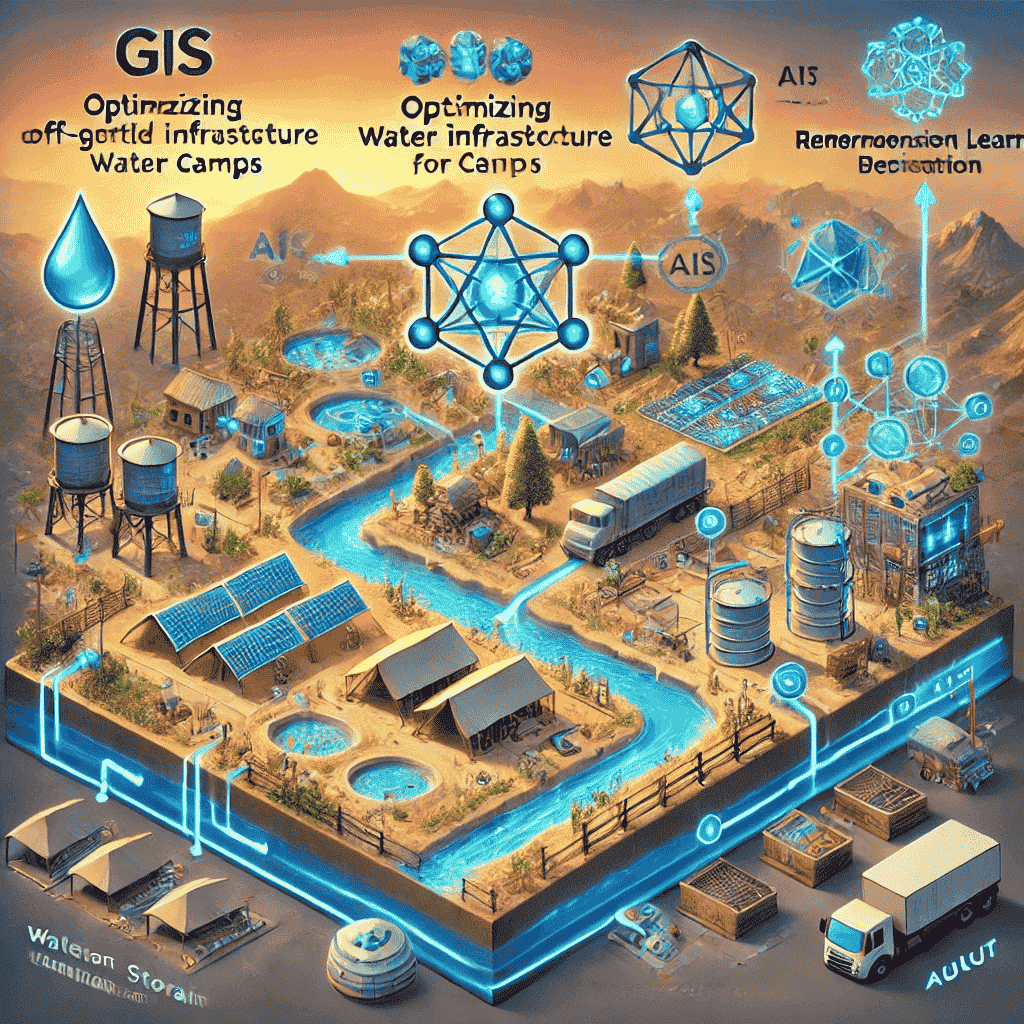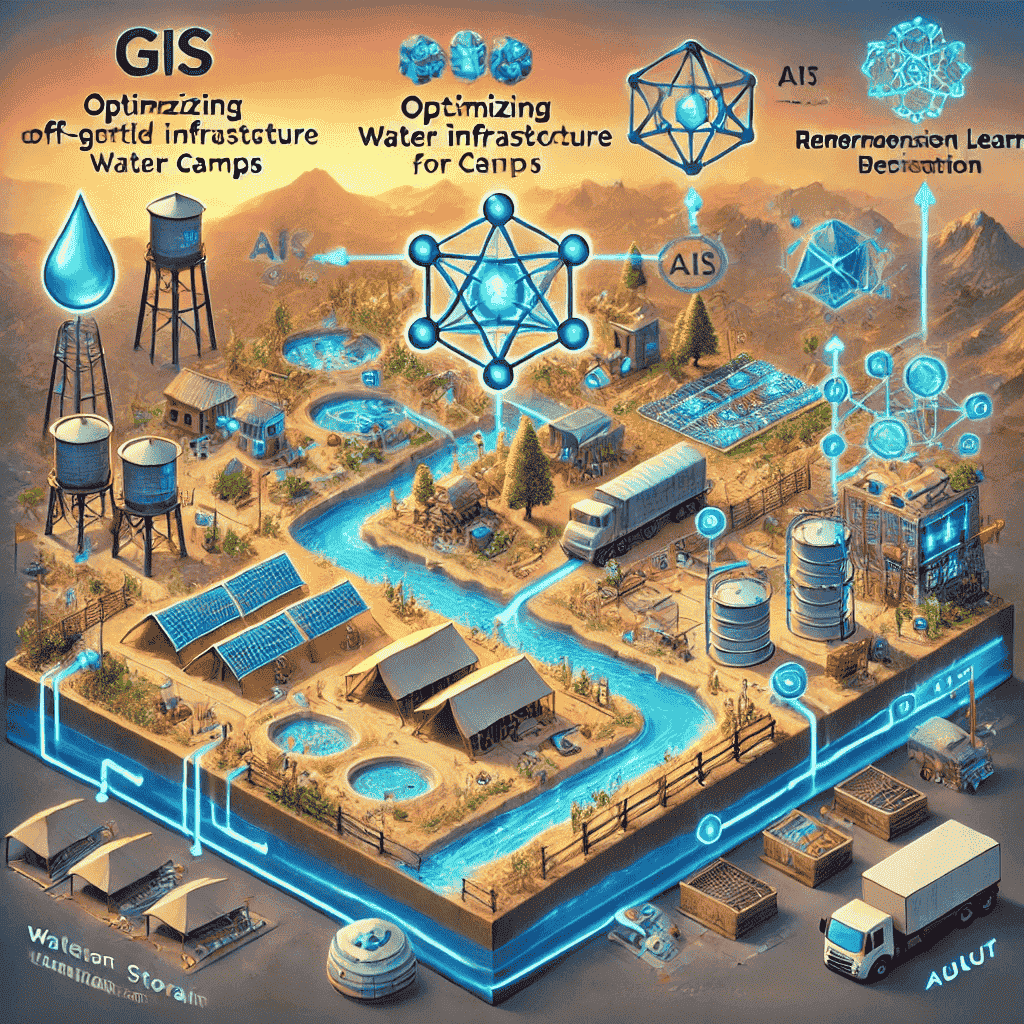Optimizing Decentralized Water Infrastructure For Off-Grid Camps
The research investigates optimizing decentralized water infrastructure for off-grid camps by integrating Geographic Information Systems (GIS), Artificial Intelligence (AI), and reinforcement learning (RL). The aim is to enhance spatial resource allocation, ensuring a more efficient and sustainable water distribution system. GIS is employed to map geographic constraints, while reinforcement learning dynamically adapts resource allocation to changing conditions, creating a responsive and resilient water management framework.
The methodology includes collecting and analyzing geospatial and water system data to identify patterns and constraints. A reinforcement learning-based model is then developed to optimize resource distribution, focusing on minimizing waste and maximizing supply reliability. The model’s performance is tested in simulated scenarios to validate its effectiveness in achieving cost-efficient and sustainable outcomes.




